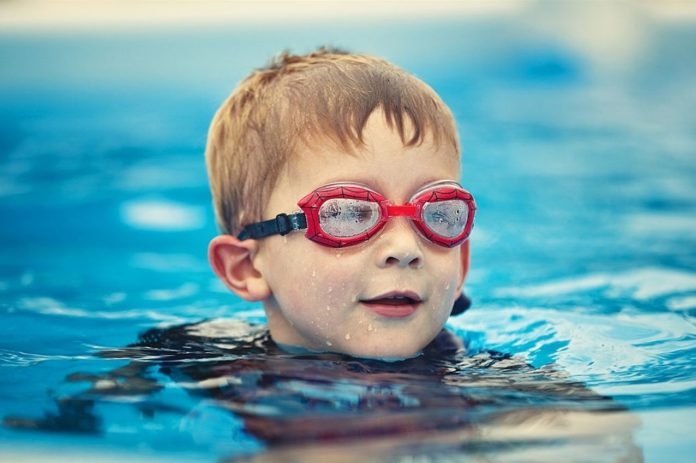According to a recent study conducted by researchers at the University of Delaware, aerobic exercise, such as swimming can help children grow their vocabulary.
The article, which appeared in the Journal of Speech Language and Hearing Research, details one of the earliest studies on the effect of exercise on children’s vocabulary growth.
Children ages 6 to 12 were taught new words prior to participating in one of three activities: swimming, CrossFit exercises, or colouring. Children who swam were 13% more accurate on subsequent vocabulary word tests.
- Neuroscience Breakthrough: Study Pinpoints Brain Activity That Helps Prevent Us From Getting Lost
- Brief Anger Hampers Blood Vessel Function Leading to Increased Risk of Heart Disease and Stroke – New Study
- New Blood Test Pinpoints Future Stroke Risk – Study Identifies Inflammatory Molecules as Key Biomarker
- Enceladus: A Potential Haven for Extraterrestrial Life in its Hidden Ocean Depths
- New Experiment: Dark Matter Is Not As ‘DARK’ As All We Think
It makes sense to Maddy Pruitt, the lead researcher and a former college swimmer who now regularly attends CrossFit classes.
“Motor movement helps in encoding new words,” she said, explaining that exercise is known to increase levels of brain-derived neurotrophic factor, a protein Pruitt describes as the “Miracle-Gro of the brain.”
Why, then, was swimming beneficial while CrossFit was not? Pruitt attributes this to the amount of energy expended by the brain during each exercise. Swimming is an activity that children can participate in with little thought or instruction. It was more automatic, as they were unfamiliar with other CrossFit exercises. The children required mental energy to learn the moves.
Pruitt conducted the research as part of her Capstone Project for her Master’s degree and graduated in 2020. She is now working as a speech language pathologist at a South Carolina elementary school, where she puts her research into practice.
“My sessions are very rarely at a table,” she said. “I’ll take my kids out to the playground or we’ll take a walk around the school.”
Giovanna Morini, Pruitt’s adviser and coauthor, is expanding on her lab’s findings. Morini, an assistant professor in the Department of Communication Sciences and Disorders, noted that while the majority of exercise research focuses on promoting a healthy lifestyle, little attention is paid to language acquisition.
She sees this as a fruitful line of inquiry and is currently conducting a similar experiment with toddlers.
“We were so excited about this study because it applies to clinicians, caregivers and educators who can put it into practice,” Morini said.
- Neuroscience Breakthrough: Study Pinpoints Brain Activity That Helps Prevent Us From Getting Lost
- Brief Anger Hampers Blood Vessel Function Leading to Increased Risk of Heart Disease and Stroke – New Study
- New Blood Test Pinpoints Future Stroke Risk – Study Identifies Inflammatory Molecules as Key Biomarker
- Enceladus: A Potential Haven for Extraterrestrial Life in its Hidden Ocean Depths
- New Experiment: Dark Matter Is Not As ‘DARK’ As All We Think
“It’s simple stuff, nothing out of the ordinary. But it could really help boost the outcomes.”
Image Credit: Getty
